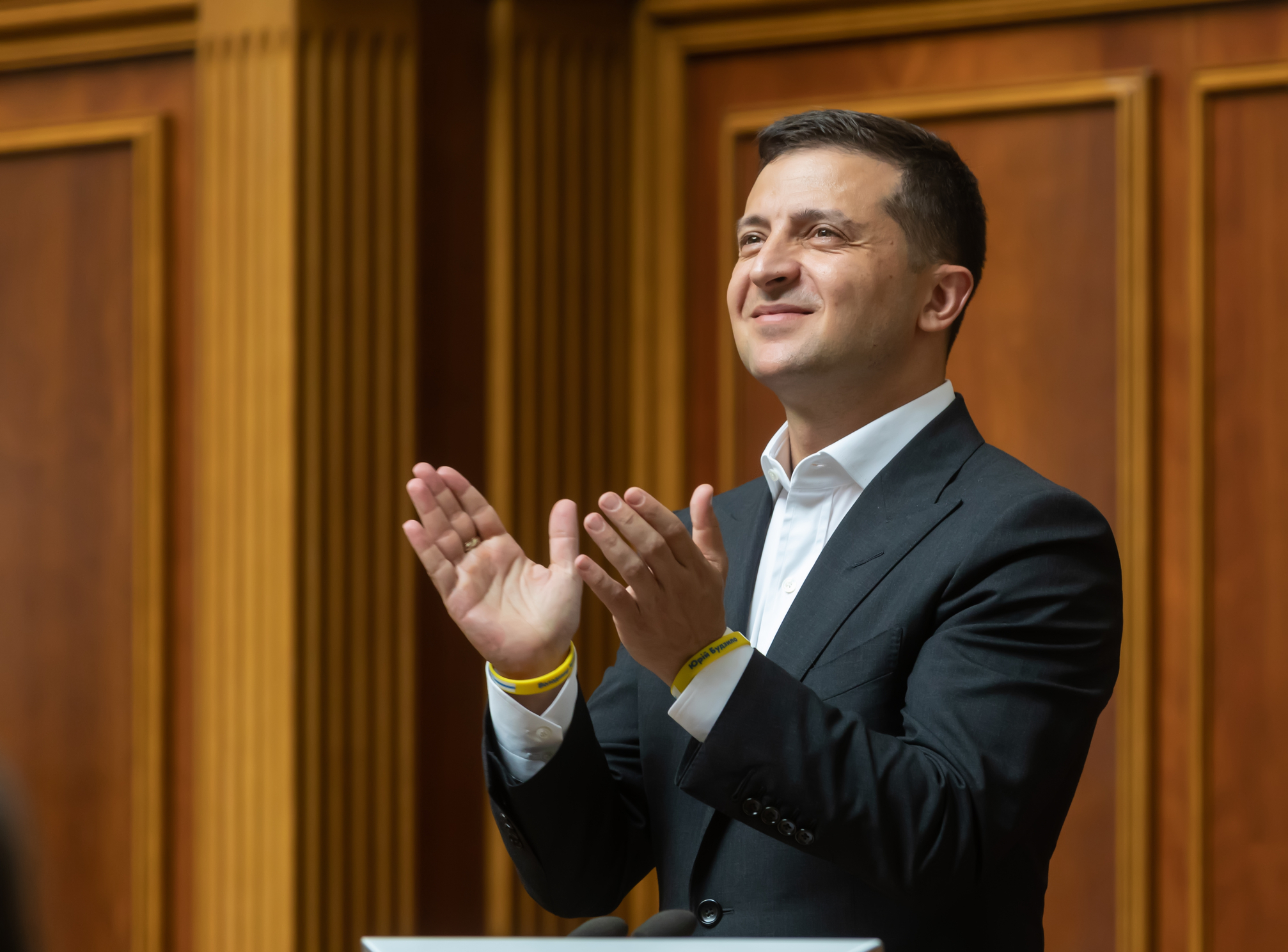Opaque Ammunition Contracts Damage Ukraine’s Defense Effort
President Zelensky’s ambassador to the United States caused a scandal with Republican lawmakers during his recent visit to Pennsylvania. She set up a visit to the Scranton Army Ammunition Plant, where much-needed 155mm artillery rounds are made.
The visit turned into a clumsy attempt to help Democrats garner votes in this important state.
Republicans expressed outrage at the highest level.
Speaker of the House Mike Johnson (R-LA) demanded that the president recall Ambassador Markarova because of her interference in U.S. elections, but his demand fell on deaf ears. Markarova remains in her position, continuing to insert Zelensky into American politics despite the risk it poses to Ukraine.
Last week, Ukraine’s ambassador to the Czech Republic, Vasyl Zvaryc, followed Markarova’s example. He started running political interference in favor of embattled prime minister Petr Fiala.
The issue again involved 155mm howitzer munitions, sent to Ukraine under the so-called Czech Munitions Initiative.
The objective of the initiative, which was organized by Prime Minister Fiala, was to raise money from European states to procure 155mm rounds from countries that do not supply Ukraine directly. I have criticized this scavenger hunt in a series of articles that readers are welcome to read here and here.
Czech opposition leader Andrej Babiš publicly criticized Prime Minister Fiala for selling “overpriced and moldy munitions” to Ukrainians, pointing out that the sellers are profiteering from the suffering of the Ukrainian people. Czech senator Lukas Wagenknecht issued a report for his Standing Committee for Oversight of Public Spending concluding that the munitions were at least 22% overpriced and that the entire procurement process was such a sham the donors were better off sponsoring Ukraine directly.
Germany’s Handesblatt newspaper (the German equivalent of the Wall Street Journal) broke a story that the overpriced munitions were detonating prematurely, damaging equipment and maiming soldiers. This is every artilleryman’s nightmare, as the Germans so aptly put it! Moldy indeed, as Babis had rightly pointed out.
Fiala’s cabinet, especially his minister of defense Jana Cernochova, rushed to cover up the scandal. They labeled Babiš a Russian spy and accused him of furthering Putin’s agenda. They called Senator Wagenknecht a Russian useful idiot for ‘aiding and abetting Putin,’ and Handesblatt ‘a disinformation platform working in Putin’s interest.’
According to the Czech government, all these independent parties criticizing the Czech Munitions Initiative were the bad guys helping Putin; but Fiala’s cabinet wasting donations to supply fewer munitions that blew up in the faces of Ukrainian soldiers, was anti-Putin. Go figure!
Fiala’s conduct is confusing at best, but it looks like sabotage of Ukrainian munitions supplies. Scrap munitions prematurely detonating during live firing would be a cause for a high-level investigation in the U.S. Army. Could the Russians have infiltrated Fiala’s cabinet and corrupted Ukraine’s munitions supply chain? Where is the Czech or Ukrainian investigation?
How could this happen without Ukrainian consent or involvement?
Is there a corrupt Ukrainian element, or worse yet, a Russian infiltrator facilitating the supply of overpriced and scrap munitions?
Kyiv is crawling with Russian spies.
Then came Ambassador Svaryc with exculpatory statements, claiming he “has never seen complaints about premature detonations;” that Handesblatt is inappropriately discrediting the munitions initiative; and finally going overboard saying that the initiative is transparent, excellent, and helpful to Ukraine. The Zelensky administration is covering up for Fiala.
Why would the Zelensky administration cover up the supply of overpriced defective munitions?
How could the ambassador stoop so low to cover up the undisputed fact of premature detonations?
The answer may lie in Wagenknecht’s report that mentions a mysterious “local partner” in Turkey which inflated the cost of the munitions by up to 8% beyond other profit margins.
Ukraine is one of the world’s most corrupt countries, and it would be helpful to know what service the unknown partner provided for that 8%.
We do not know, but a mysterious margin going to a mysterious partner with no record of services performed is a red flag for corruption and money laundering. A Ukrainian ambassador minimizing the maiming of Ukrainian soldiers is another red flag. And seeing Zelensky cover that ambassador is a third red flag.
It may be Zelensky that has an incentive to cover up this scandal.
Republican Vice-Presidential candidate JD Vance has publicly criticized the Czechs for their tight connections in the defense sector with Russia and China. Vance was also a critic of American involvement in the war in Ukraine: he made the points that there is insufficient supply of munitions and that assistance was spent inefficiently.
He was one of the few politicians to publicly question Zelensky’s motives. He stood up to the mainstream media wearing blue and yellow blinders to point out that Biden’s policy to support Ukraine was weakening the United States.
The Czech Munitions Initiative is another example of the West’s failure in Ukraine.
Vance has demonstrated foresight and courage in his criticism, and he is right to call for an end to assistance to Ukraine until Zelensky is replaced with someone more trustworthy.
Only then can we reevaluate the war in light of American interests.
The Zelensky administration’s willingness to cover up faulty ammunition that maims and destroys is suspicious, and it cannot be trusted with our taxpayer money.
James Durso (@james_durso) is a regular commentator on foreign policy and national security matters.
Mr. Durso served in the U.S. Navy for 20 years and has worked in Kuwait, Saudi Arabia, and Iraq.
Featured Photo: ID 157276429 | Zelensky © Palinchak | Dreamstime.com
KYIV, UKRAINE – Aug. 29, 2019: President of Ukraine Volodymyr Zelensky during the session of the Verkhovna Rada of Ukraine of the ninth convocation

